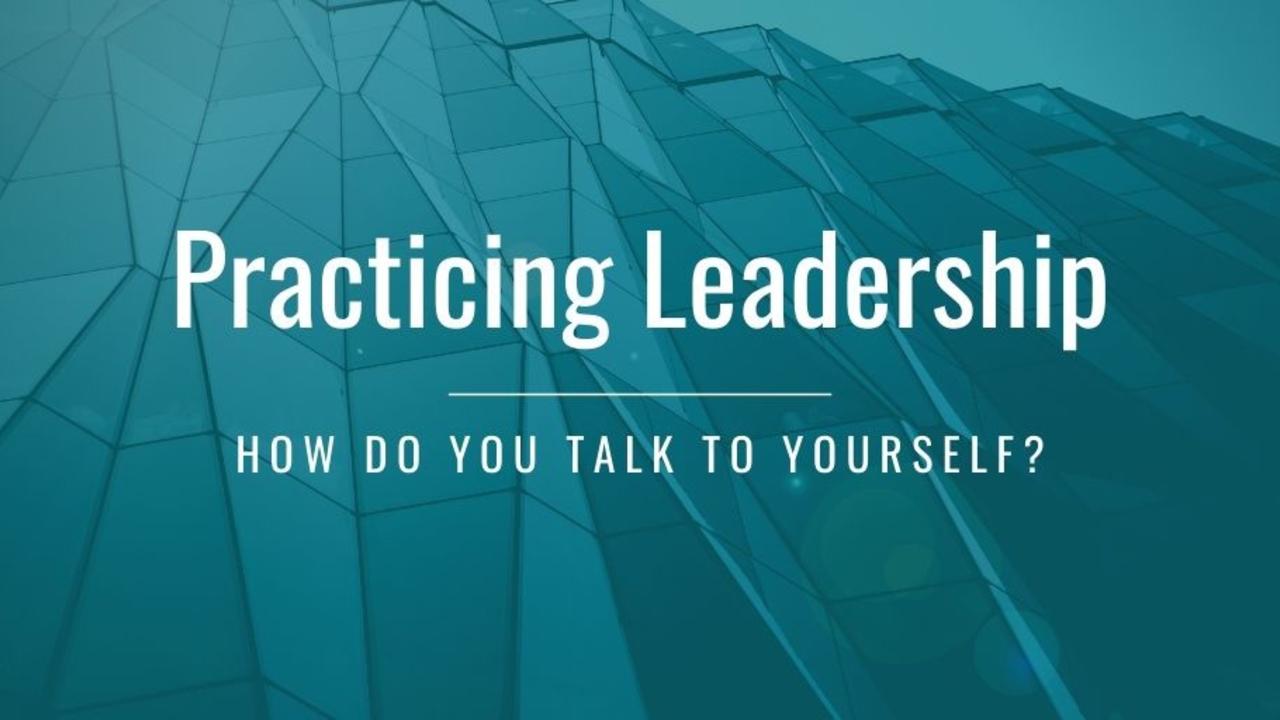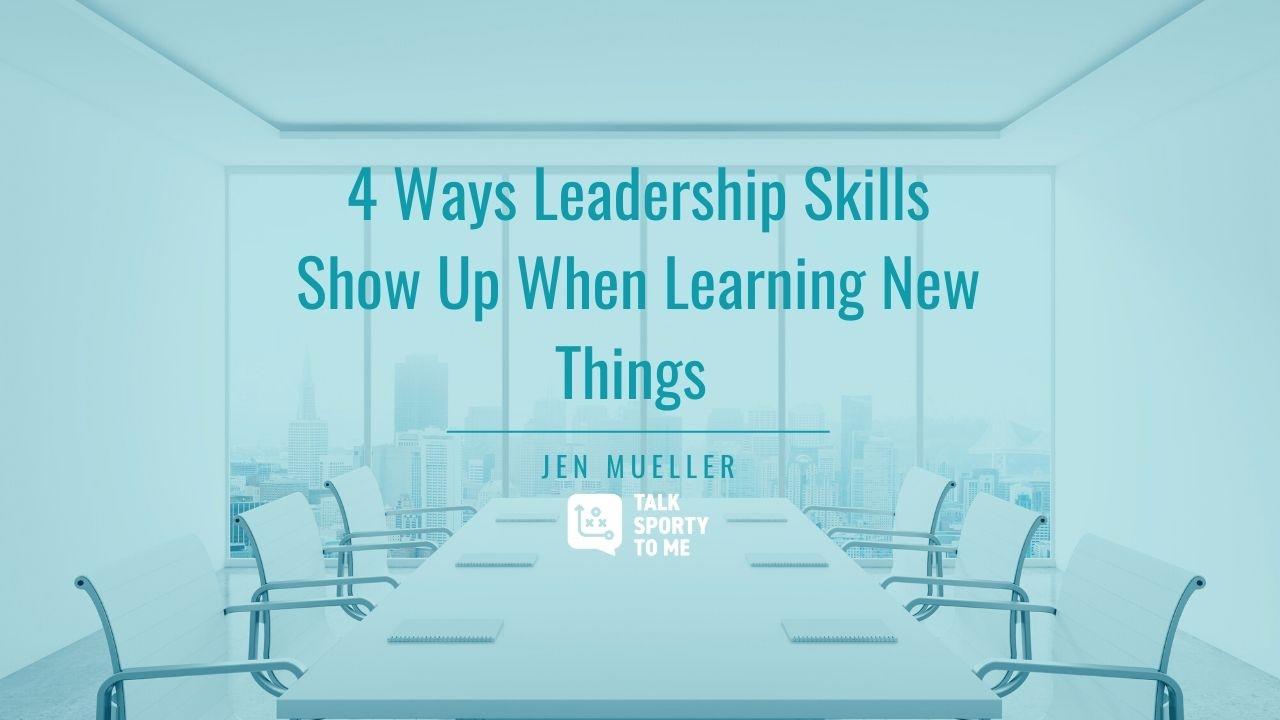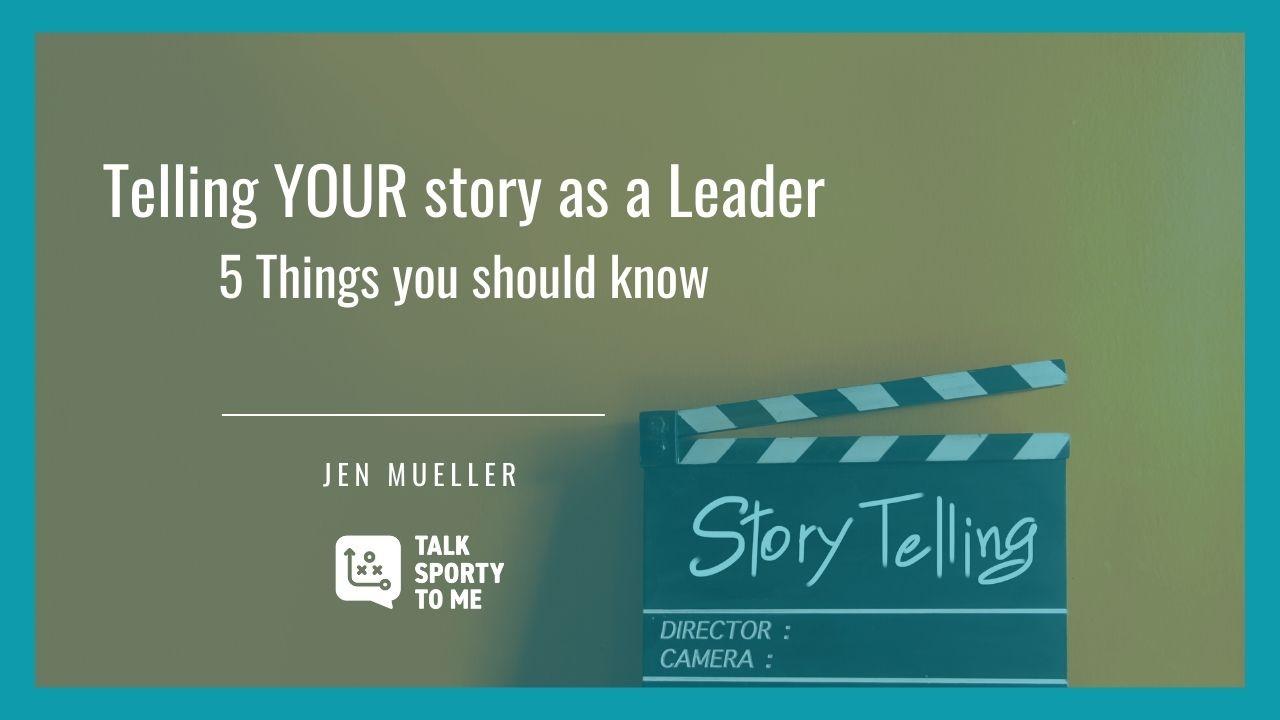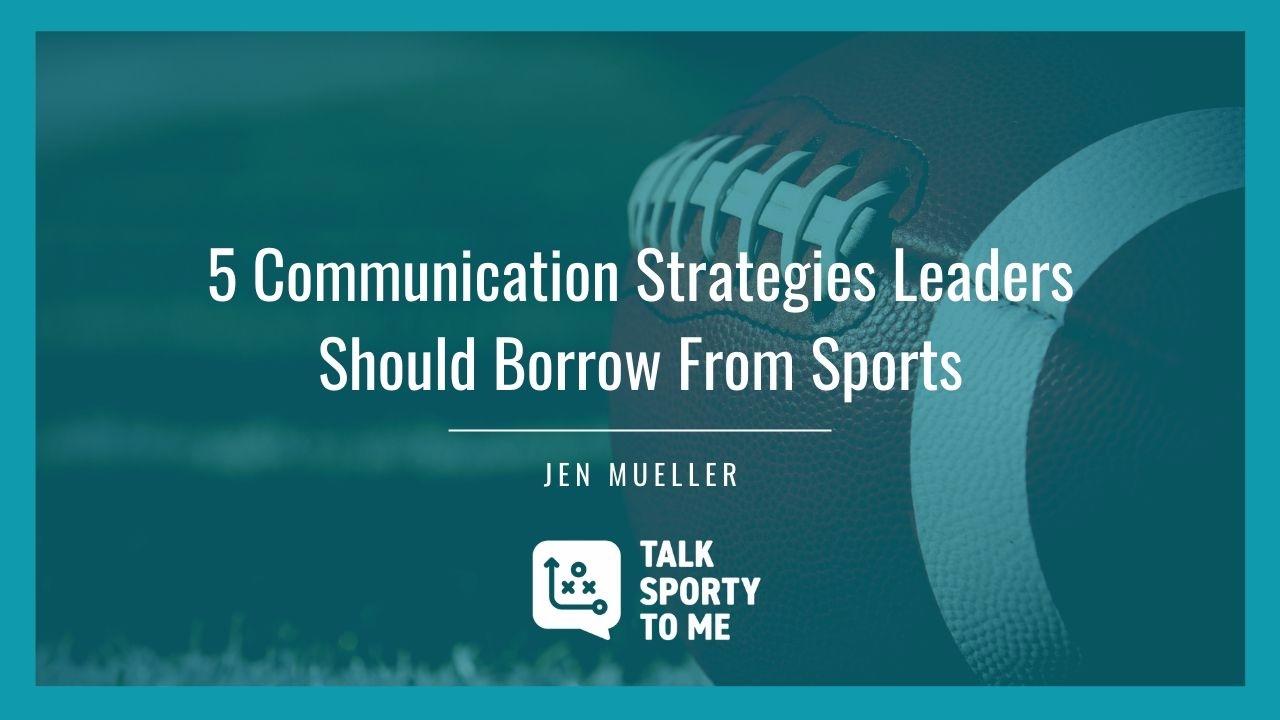I'M ONE TO TALK
Our Blog Posts will help you reach your full potential in becoming a confident conversationalist. New topics each week.
Learn from a Leader: Thought Leadership

Thought leadership is more than being seen as an expert. It's a way to drive business. An ongoing study by Edelman and LinkedIn found:
"Companies with the best ability to produce timely, thought-provoking thought leadership content are much more adept than their competitors at capturing their customers’ attention and turning that attention into positive results."
Positive results for a company = sales.
Positive results for you as a leader = influence and power to persuade.
Thought leadership isn't reserved for a select few at the top of a company. Anyone can contribute by being thoughtful, timely and persuasive in their messaging.
It's a lot like being a newspaper columnist. Well written columns are designed to get you to think and persuade you to see a different point of view. Jerry Brewer, sports columnist for The Washington Post does this on a weekly basis. He joined the Learn from a Leader series in July to describe how he approaches thought leadership and what that mean...
Learn from a Leader: Chaotic Decision-making
Choosing not to make a decision is still a decision.
Even if you made that decision because you were waiting for more information to make the "real" decision.
Waiting for more information isn't always the best course of action, especially when dealing with the uncertainty caused by a pandemic. The best leaders take action and create options and flexibility. That's as true now as it was when the pandemic started.
I think it's great advice, but I'm a little biased since it comes from my dad. He knows what he's talking about a number of years in the C-suite.
Practicing Leadership: How do you Talk to Yourself?

“Are you talking to yourself again?”
I’ve lost track of the number of times my husband has asked that question during quarantine.
It’s something I do when problem-solving or trying to remember something. I usually ignore him because there’s no pretending I’m not carrying on a full-blown conversation with myself.
But there is something I won’t ignore anymore the use of certain phrases that should be canned from how we describe what’s happening right now – unprecedented and new normal.
My background as a TV producer leads to me believe emails have been sent from executive producers to writers and producers across the country telling them not to use those words or phrases. (That happens occasionally when words get overused and lose their meaning or aren’t providing an actual description of anything.)
Let’s be honest, by this point we recognize we have all experienced something unexpected that will reshape the way we do business moving forward. The more we talk about unprecedented tim...
Learn from a Leader: High School Student Athletes on Leadership in Uncertainty
Outcomes determine winners.
In sports, it's the final score or the fastest time that indicates a win. But what happens in the absence of outcomes, during a time of uncertainty?
Winning looks different.
For high school seniors unable to finish out their sports careers, winning can't be defined by games, races or matches. "Winning" becomes about their leadership skills in a time of uncertainty, their willingness to continue showing up for teammates and their ability to show gratitude for coaches, teachers and parents.
I recently spoke to a group of high school seniors from Bellevue Christian School to learn how they've been affected by COVID-19 and how it's helped them develop leadership skills.
Each one talked about the sports lesson they've leaned into during a time of uncertainty and serves as reminder that sports is more than outcomes. It's an opportunity to lead and provides a blueprint for overcoming challenges and challenging times.
Key Takeaway - Use your sports exp...
4 Ways Leadership Skills Show Up When Learning New Things

Leaders never stop learning.
I’ve always looked at the scholastic or philosophical side of that statement more than the technical or the tactical.
Reading articles, books, or studying the habits of other leaders is what came to mind most often, and then I was forced to learn a new website platform.
I’ve spent countless hours over the last three weeks trying to figure out how to use all the features, adapt what I had been doing to what’s now available and cursing under my breath in frustration because it just shouldn’t be that difficult.
It’s called learning.
And I don’t have as much patience for it as I thought.
You can know something without it being a learned behavior or habit. For that to happen, you need to actually do the thing.
The whole experience reminded me that I can read all the articles I want and study other leaders but unless I put myself in position to practice a new skill it won’t actually be something I learn.
Here’s what else I realized, learning things ...
Telling YOUR Story as a Leader: 5 Things you should know

People follow people, not plans.
Projections, plans, implementation strategies are all necessary and important for informing the people you lead, but don’t overlook the importance of providing insight on who they’re following.
That doesn’t happen by handing out your resume or talking about past success. It happens when you tell your story.
I’ll admit I’m not great at this. I’ve never felt it was important or even necessary to tell my story. What’s the point of hearing me ramble when you have your own stories and experiences to draw from?
And then after talking to a number of female leaders I realized I was looking at this the wrong way. Telling my story isn’t about me. It’s about giving others context for their stories and experiences. In other words, it’s a way of showing people they’re not alone.
Great leaders aren’t afraid to pull back the curtain and share personal stories.
And yet selling is sometimes easier than showing. Selling people on your qualifications seems like ...
5 Ways to Be a Better Teammate at Work

Whether you like it or not you are part of a team. Even entrepreneurs work with teams of people that require a certain level of teamwork.
You can argue the value of working together on group projects.
You can dislike the team members you’re working with.
Or you can extoll the benefits and importance of teamwork, like the fact that people who work on a team are twice as likely to be engaged at work according to a global study done by the ADP Research Institute.
The teams I work as a sports broadcaster don’t question the value of teamwork because it’s a requirement. Teamwork isn’t a buzz word in sports. It’s not a cliché. Being a good teammate isn’t category on yearly performance review, it’s on display for athletes every single day.
Which means… watching sports can provide insight on how to be a better teammate. Sports is more than stats and scores.
Watching sports with a critical eye reinforces what teamwork actually is and can give you a framework for becoming a better teammate...
Access the Learn from a Leader Video Library

Leaders never stop learning.
And the best leaders learn from other leaders.
You have the opportunity to do that every single month. Invest in the Learn from a Leader series and you’ll get leadership insights and practical takeaways from a featured leader every month.
- Want to know how Amy Nelson, CEO of The Riveter, raised more than $20 million in venture capital? She walked us through how she gained the confidence and comfort-level to ask for money.
- Curious about best-practices from the Seahawks meeting rooms? Seahawks linebacker K.J. Wright pulled back the curtain.
- Need new ideas on how to brainstorm with a team? Seattle Chocolate CEO Jean Thompson shared the way she does it with her team.
- Struggling with a risk/reward scenario and looking for advice? Former Seahawk and current business owner, Lofa Tatupu provided two questions to evaluate the outcome.
That’s just a handful of the leaders who have taken part in the series. You can access all of the sessions in the Learn...
5 Communication Strategies Leaders Should Borrow From Sports

Stats, scores and outcomes.
That’s usually how sports conversations are approached. Throw in an occasional cliché or metaphor and people really think they’re “talking sporty” when, in fact, they’re looking at sports through a very narrow lens.
Sports provides the framework leaders can use to develop effective communication skills. I see this first-hand as a sports broadcaster with nearly 20 years of experience inside professional locker rooms. You see it too because these communication takeaways are evident every time you watch a game – if you’re watching with a critical eye and an intent around developing stronger communication and leadership skills.
5 Communication Strategies Leaders Should Borrow From Sports
Have face-to-face conversations. The field of play is one of the only places face-to-face, real-time interactions are required. Coaches don’t send emails with an in-bounds play. Quarterbacks don’t text their receivers the route they’re supposed to run. A caddy doesn’
...


